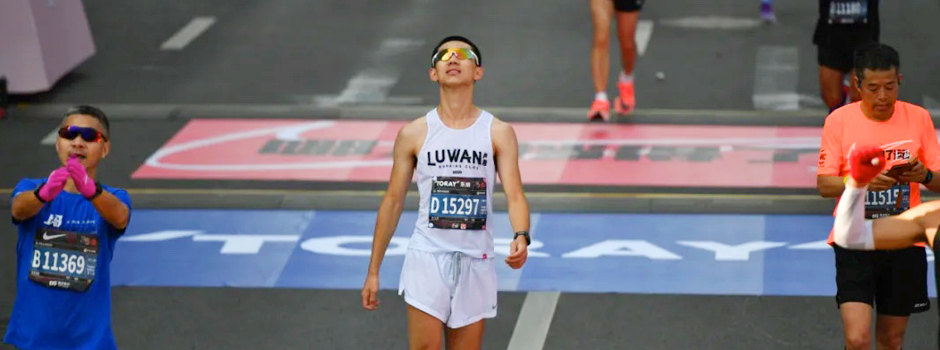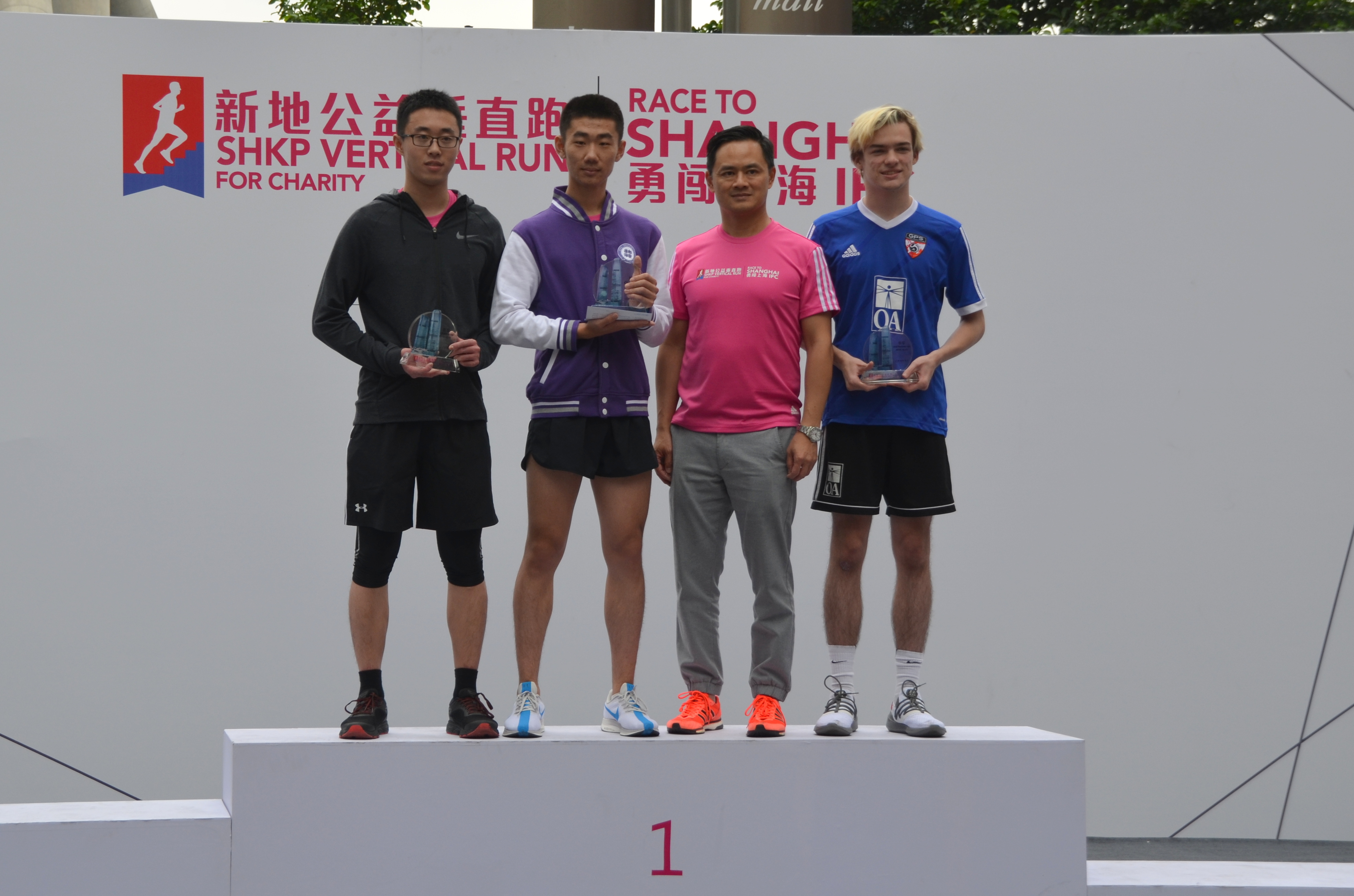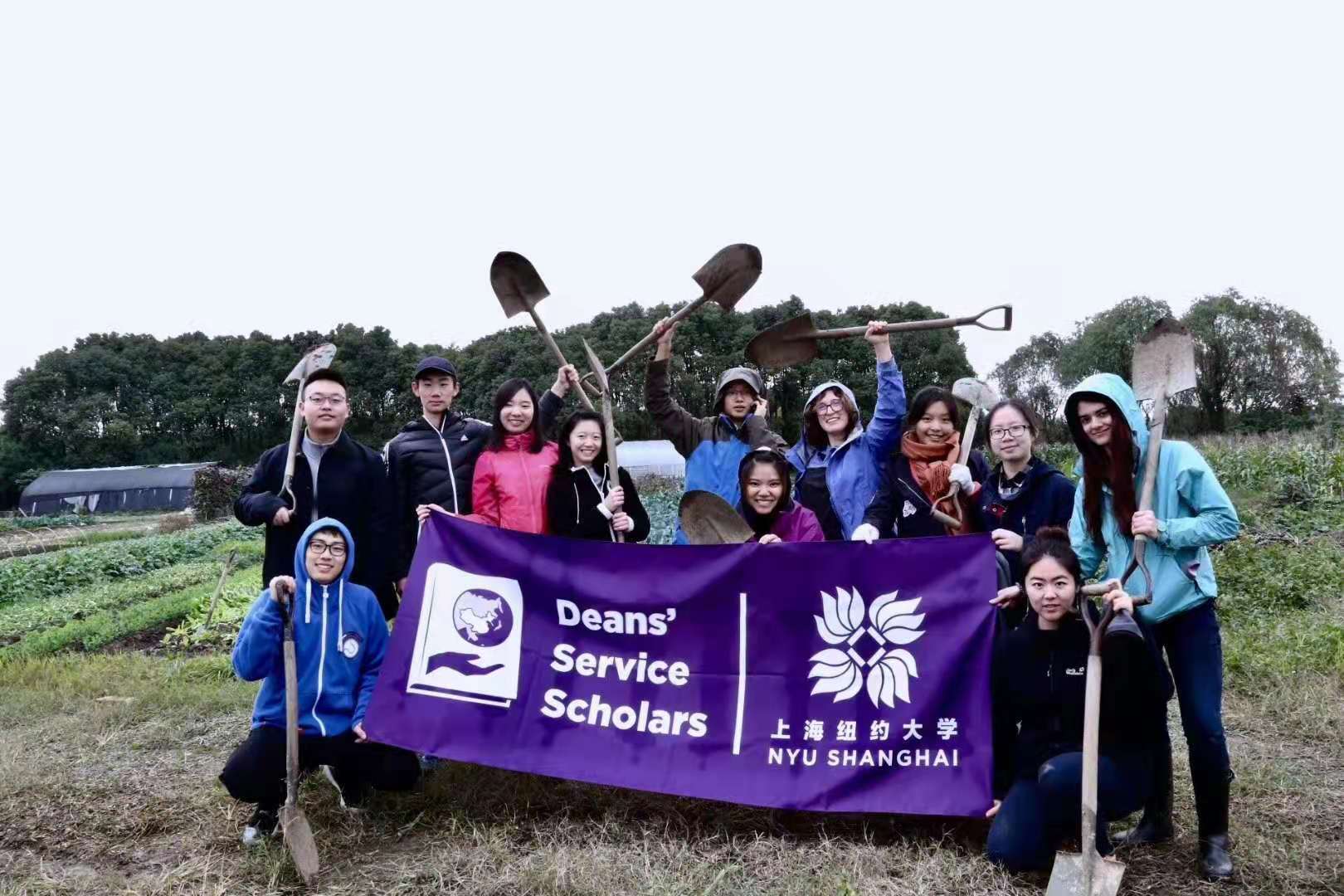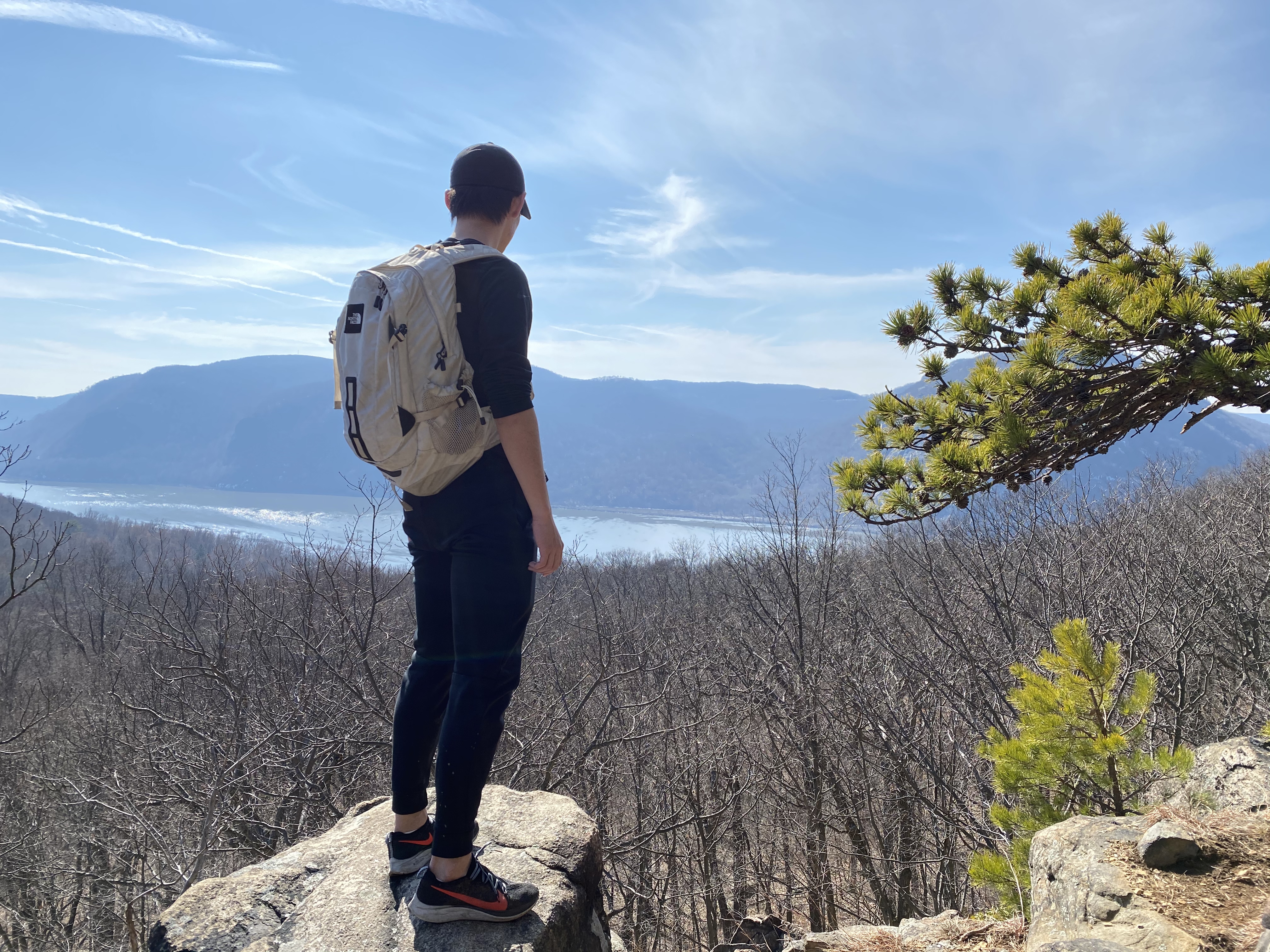
Hometown: Jinan, Shandong Province, China
Major: Physics and Mathematics
As he slogged past the 33-kilometer mark in the November 2020 Shanghai International Marathon, Bruce Ma Jiaji struggled to find the strength to make it to the end of the race’s 42-kilometer course. “My legs felt like metal sticks, which let me realize that I have ‘hit the wall,’ in runners’ terminology. But I had come so far. I knew I had to reach the finish line, even if I had to crawl across it.”
And he did finish – upright, on his feet – in 2 hours, 55 minutes, and 39 seconds. It was an incredible, invigorating feeling to push himself through such an intense challenge with a steady pace and determined mind.
But it was also a very familiar feeling, one he encounters constantly in his research with NYU Shanghai Assistant Professor of Physics Chen Hanghui, which started back in 2018, when Ma was a sophomore. Three years later, it has proved to be a fruitful mentorship, yielding two publications and two conference presentations by Ma.

Ma (2nd from left) dons his purple and white NYU Shanghai jacket to accept First Prize in his age group in the SHKP Vertical Run to the top of Shanghai's International Financial Center.
This week, Nature Communications, a leading interdisciplinary science journal, published Ma’s project outlining a strong coupling between itinerant electrons and polar phonons, the softening of which is a potential characteristic of a superconductor, a material that has the ability to conduct electricity completely without resistance. The article was co-written with Chen and NYU Shanghai alum Yang Ruihan ’18, with Ma as first author.
Ma says research was a big part of what drew him to NYU Shanghai. The university’s smaller size and the ability to work closely with professors here meant he could focus on learning simply for learning’s sake, not to try to gain a competitive edge against his classmates. In just his second week on campus at NYU Shanghai, Ma approached Assistant Professor of Physics Tim Byrnes about research opportunities. Without hesitation, Byrnes invited Ma to join his daily research group meetings.
“At the end of high school, I naively thought that I knew a lot. But the first day that I joined Professor Byrnes’s group and tried to read the first paper they were discussing, I realized that I knew nothing!” Ma says with a laugh. The English that the complex papers were written in was incomprehensible to him, and he had never seen many of the mathematical symbols in the papers’ formulas. “But it didn’t make me feel scared or upset – I felt ignited. I was just excited to learn more,” Ma says.
In fact, his first few semesters on campus were filled with similar moments. His English skills were among the best in his high school class, but classes like Writing as Inquiry and Perspectives on the Humanities showed Ma that he still had so much to learn when it came to writing in English. “I think it changed my way of thinking,” Ma says. “I really needed to think logically. When I said ‘A,’ I needed to know what is the reason for ‘A.’”
Then there were his classmates. “In high school, I felt that I was an unorthodox person, but when I came here I felt that I was just normal, because everyone here was unorthodox,” Ma recalls. “I thought I was an interesting person, that I was funny. But I was shocked that here, everybody was funny. Everybody had a lot of other things to talk about other than exams and practice problems.”
As exciting as it was to be able to connect with such interesting and intelligent students from all over the world, it also caused Ma to question how he defined himself. There were many moments when he doubted if physics was really the right path for him, as he saw classmates with similar interests and abilities studying finance or computer science. And if his personality wasn’t that unique, then who was he really?
“Should I be like them? Or should I have some other traits or characteristics of myself?” Ma remembers asking himself. “I needed something else to really find myself.”

Ma (third from left) travelled to China's Yunnan Province in 2018 with the Dean's Service Corps to plant trees.
That search took an abrupt turn toward crisis at the end of his freshman fall semester, when Ma suffered from severe lower back pain caused by lumbar disc protrusion. “In the morning, I could not bend down to wash my face. I had to stand through classes because sitting was painful. Just a small cough would inflict great pain in the lower back,” Ma remembers.
Doctors offered him two solutions: surgery or bed rest. Afraid the surgery’s outcome could be temporary, or even unsuccessful, Ma chose to spend his entire first winter break in bed. “I had to just lie there, looking up at the ceiling, worrying that the rest of my life might be like this,” Ma says.
“After lying in bed for a few days, I thought, this cannot be the way that I spend the rest of my life,” Ma recalls. “I must learn to live with this pain, and find a way to concentrate through it.” He began sitting up for just a few minutes every day to read or study, and gradually he became capable of concentrating through the pain. He felt empowered and encouraged, and when he finally got a series of treatments from an expert acupuncturist, his condition began improving rapidly. After several more months of moderate recovery exercises to strengthen his back muscles, Ma finally felt like himself again.
Getting through that time, and the fear that he would never fully recover, was the biggest single challenge Ma says he faced during his time at NYU Shanghai. It gave him a newfound respect for people who deal with disability on a daily basis, and it made him rethink the headlong intensity with which he had approached everything before his illness. It also pushed him to examine what was really meaningful to him.
Part of that meaning for him is research, trying to push the boundaries of human knowledge forward just a little bit. But it’s also about enjoying the things he loves: running around Century Park, cycling along the Huangpu River, trading jokes, cooking wontons and steaks with his friends and roommates. In Ma’s eyes, he no longer needs to feel “different” in order to define himself. “I’ve just found a way to be comfortable with myself. I’m different enough when I just do the things that I love,” he says.

During his time studying away in New York City, Ma frequently traveled outside the city to hike in the rugged hills along the Hudson River, where he could "listen to himself." Here, he looks down on the raging Hudson from Breakneck Ridge.
His illness also reminded him that sometimes asking for help is necessary, an idea that was only reinforced by his experience with advanced research. “Your goal is to solve the ultimate question instead of tackling all the details yourself. You cannot and are not supposed to solve everything yourself,” Ma says. “You should stand on the shoulders of the previous people and collaborate with others.”
With all of these new ideas in mind and a lot of research experience in his back pocket, he’ll be heading to Yale University in fall 2021 for a PhD in Applied Physics.
Ma says at Yale, he is looking forward to advancing his knowledge in physics, as well as learning many new things outside the classroom. “You always have to find ways to change your perspective a little, otherwise you might keep thinking the same way.”
Meet more NYU Shanghai Class of 2021 graduates:
For more about this year's commencement and the Class of 2021, visit our Commencement 2021 webpage.

